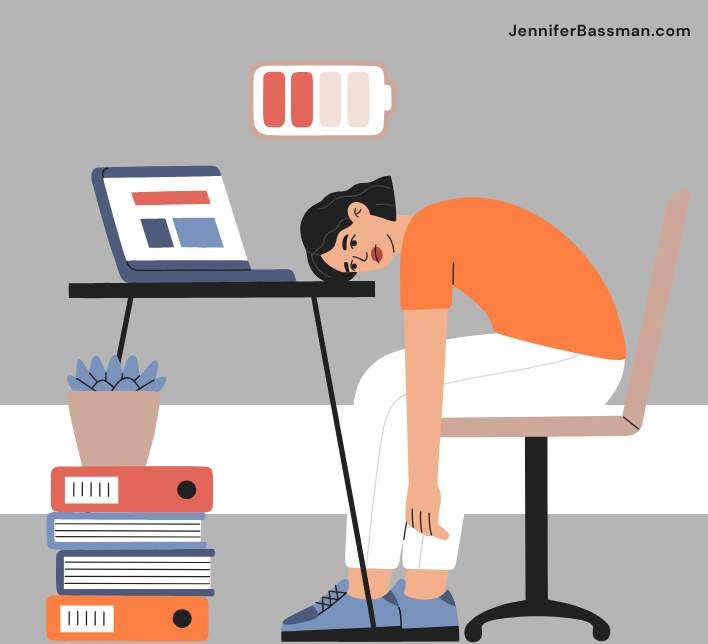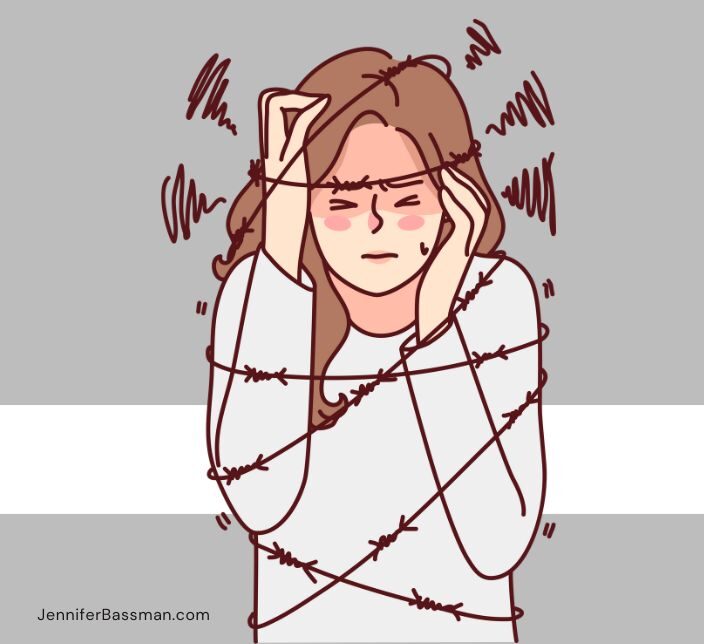These three ingredients should be included in your burnout recovery recipe because you literally cannot recover from burnout without them:
- Stress Management
- A Clear Path to Recovery
- Burnout Recovery Supported Daily Routine
If you are reading this, how are you not on my email list??? Join now!
Ingredient #1: Stress Management
This should be one the very first things you consider when working on your burnout recovery. Burnout is the result of chronic stress that has gotten out of control. So, burnout recovery can’t happen without it.
Stress affects every part of your body and leaves damage in its wake. It also depletes your well of energy faster, keeps you from making good decisions, and doesn’t allow for clear thinking.
Managing your stress doesn’t have to be complicated. It can be as simple as interrupting your stress response with a walk, a deep breath, or a 5-minute break.
Ingredient #2: Clear Path to Recovery
Burnout recovery is confusing and can be frustrating – especially when whatever you are trying to do doesn’t work. Sometimes these failed attempts can even make your burnout worse.
Working with a burnout recovery coach (like me!) or taking a burnout recovery course (like mine!) can take a lot of the confusion out of the process.
I’ll give you a hint of where to start: figure out the root cause of your burnout. The root cause needs to be address and treated first before any burnout recovery exercises should be attempted.
Ingredient #3: Daily Routine
A healthy, stable daily routine can help anchor your burnout recovery. It allows you brain to do less work because it knows what to expect. (This also reduces stress!)
Your daily routine needs to be realistic. If you are not a morning person, don’t force yourself to wake up early. This usually backfires and has the opposite effect on the rest of your day.
A healthy daily routine for burnout recovery focuses on allowing your brain and body to heal – not productivity. This doesn’t mean you can’t still be productive, but it means you aren’t trying to figure out how to do more work in less time, taking on extra projects, or squeezing things into your schedule.
Your daily routine should help manage your stress levels and build resilience to stressors.






